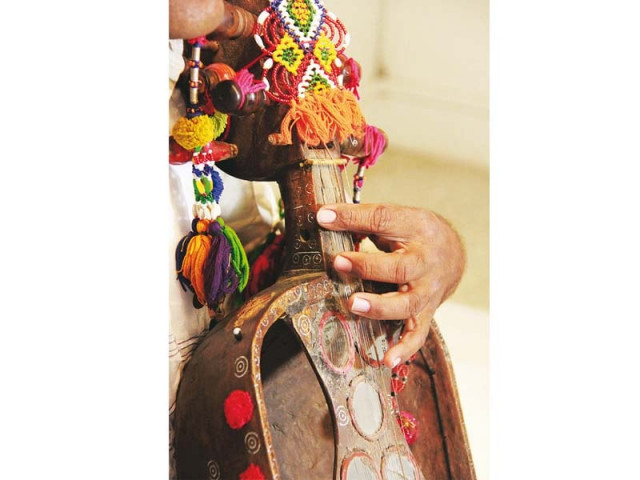Sarod: Notes from the past
A lute-like stringed instrument, the sarod has now fallen silent in Pakistan.

A MUSICIAN FROM BALOHISTAN PLAYS HIS SAROD. PHOTO : HUMA CHOUDHARY
An improved version of the Afghan rabab, a sarod is made with a variety of woods, while the strings are traditionally of horsehair. The conventional sarod has five to seven strings to play a melody, one or two drone strings, two chikari or special drone strings and nine to eleven sympathetic strings. At present, only instruments such as dhol, duff and shehnai are played at weddings and other joyous occasions, while most other percussion instruments are gradually skipping the beat in Pakistan.
Huma Choudhary is a photojournalist working for
The Express Tribune in Islamabad.
Published in The Express Tribune, Sunday Magazine, July 12th, 2015.



















COMMENTS
Comments are moderated and generally will be posted if they are on-topic and not abusive.
For more information, please see our Comments FAQ